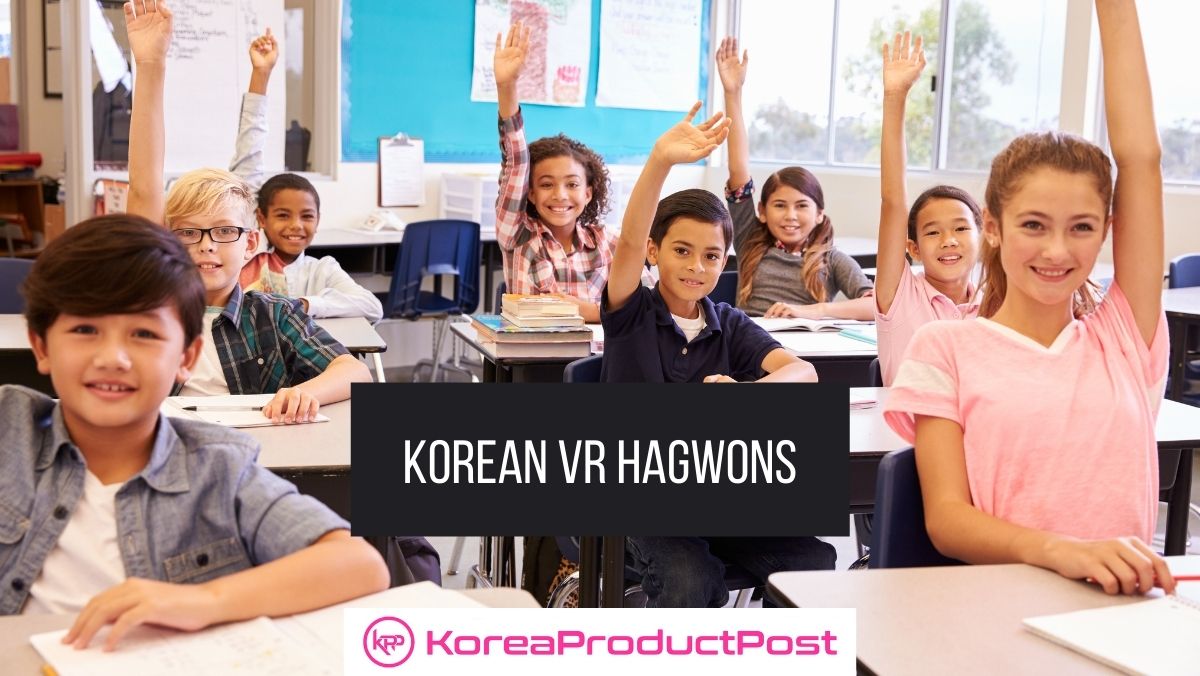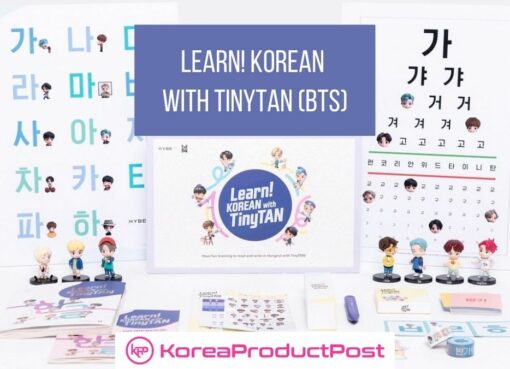English education in Korea needs a digital revolution and Korean VR hagwons can certainly help teach kids to learn English in times of pandemic!
South Korea is one of the most educated countries globally, and 98% of its population has received a secondary diploma, with 69.8% having completed some form of tertiary education. What the country lacks in natural resources and arable land, it more than makes up for its most important resource: its citizens.
South Korea transformed from a lacking, agrarian country to one of the most advanced, developed economies of the world in a short span of time, thanks to the tireless efforts of the people of South Korea.
The Korean government has heavily invested in education and developing its human resource base, with both public and private institutions cultivating the next generation of leaders and innovators. But for all its merits and tangible results, the Korean educational system has failed to address a major issue; people in Korea need better English education to keep up with the demands of globalization.
South Korea Has Always ‘Known’ English, But Is Yet to Embrace It
The first traces of English education in Korea can actually be traced back to the Joseon Dynasty, with the Public Foreign Language School being established in 1893 to “help modernize Korea.”
English becomes a “required subject” from the third year of elementary school. There are multiple after-school, private teaching institutions called “Hagwons” that give English lessons to help polish up their students’ fluency with the language. But the efficacy of their efforts is stymied by the strict structure of education that is followed in South Korea. Rote learning and memorization are key elements of the learning process, and while they work with technical subjects like Math and Science, they actually work against language studies.
In Korean Hagwons and educational institutions, grammar takes precedence over actual language fluency. While English is a required subject in schools, the teaching medium is often the native language. This leads to a disparity in the technical and applicable English skills that students pick up. For a country that is rapidly becoming the talk of the globe, both technologically and culturally, that is not a good sign.
Grammar is important, but to truly embrace South Korea’s burgeoning popularity, it is not enough.
COVID-19 & Hagwons: A Glimmer Of Change
While the global pandemic has been a trying time for the world, it hasn’t been without its silver linings. For a long time, the Korean educational system has been critiqued for its overreliance on memorization, which has led to a lack of Korean entrepreneurship and innovation.
Fostering creativity is key to innovation, but Korean education is steeped in its culture. Korean culture places heavy emphasis on respect for an elder, be it age or position of authority. This approach discourages curiosity by design, but the pandemic forced institutions to get creative with their educational modules, especially through online classes.
In a post-COVID world, online education and technology-based solutions will become the norm of the world, as South Korea itself has shown us time and again with its leading position in the world of AI.
Therefore, it only makes sense that holistic education that doesn’t just impart technical knowledge but also teaches how to implement it is the next step in Korean education. And Hagwons can help revolutionize English education in Korea with two words: Virtual Reality.
What are Hagwons?
Hagwon is a private educational academy or school. It is a for-profit organization to help kids learn the English language in a better way. Hagwons provide supplement training in the English language other than the Korean public school system. The basic concept is to make the students think and be creative instead of acquiring the memorization technique. Hagwons prepare the students to have a better flair and hold in the language, preparing students to clear various examinations. In Korean culture, the importance of education is much more prominent, and they implement new strategies to help their kids learn English in a better way. The parents try to send their kids to Hagwons to have a better hold in the language. One such initiative is Korean VR Hagwons.
Korean VR Hagwons: The Right Step Forward
PCs and the Internet stimulated the last educational revolution. With virtual reality, though, the entire game changes.
According to the 70:20:10 framework of learning, formal education accounts for 10% of effective learning; 70% of the same lies in experiential learning. People learn and retain things much better when they experience them, as opposed to simple memorization.
Hagwons aren’t usually big on technology; most places don’t use PCs or the internet to assist learning. However, by adopting VR, they can become the torchbearers of a digital revolution in the educational industry, at par with what their counterparts in the tech and electronics industries are doing.
What VR Can Do For English Education & Hagwons?
Fluency in English comes with practice, and that’s why you’ll find a lot of English-medium schools in countries where English is a non-native language.
Hagwons can greatly increase the efficacy of their teaching modules by combining technicality with experience through a VR setting.
Some of these teaching modules can include:
- Educational Trips Through VR: Teachers can take students on virtual tours of the world, visiting important heritage sites and landmarks. Trips through deep space or the bottom of the ocean can be extremely significant for Korean students, most of whom do not venture outside of Korea for their entire lives.
A very helpful tool is Google Expeditions, with a gallery of over 300 virtual expeditions that one can access through even the simplest of cardboard VR headsets made for phones. The service comes with educational cards and digestible information nuggets that can help enhance students’ fluency in English.
- VR Theatre Simulations: English isn’t restricted to grammar; it’s a language that has given birth to unparalleled literature sources, many of them play. Teachers can conduct virtual theatricalperformances to help familiarize the students with the material on a personal level.
- VR Exchange Programs: What real-life may not permit due to tangible obstructions, VR smashes through with a flick of its wrist. Cultural exchange programs through VR technology open up a whole world of possibilities for the student’s overall growth. Exchanging dialogue with students from the US, UK, Australia, or any other country is the ideal testing ground for students’ English skills.
- Virtual Visits to Hagwons: Parents and students alike will be able to familiarize themselves with your facilities without even having to step foot in them.
Why Online Is Better For Business?
While Hagwons derive their business from their immediate localities, online classes open them up to the opportunity to expand beyond their neighborhoods and take their teaching excellence across the country.
Online classes also allow for flexibility, as teachers can personalize their lessons for their students.
The Future Of English Education In Korea Is Virtual
English studies are extremely competitive in South Korea, but formal learning doesn’t exactly translate well in practice, as we have explored above.
English, as a subject, is supposed to be fun, and it is supposed to generate emotions and provoke thoughts. Reducing it to numbers and mere practicality hampers the growth of our children’s education at a time where it is more relevant than ever before.
Through VR, Korean students can have a true and effective English Education in hagwons and help their country stay on top of the innovation indices for the foreseeable future.









